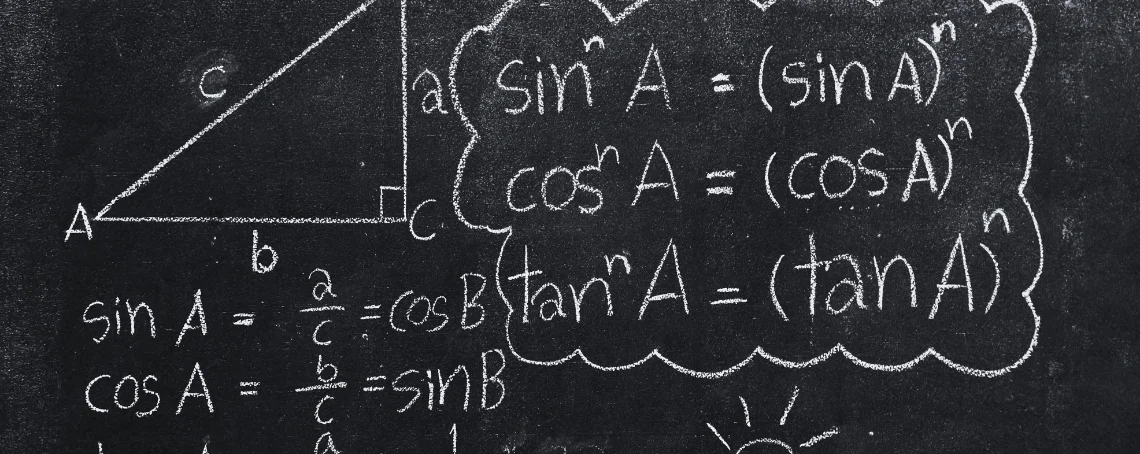As your child moves through high school, junior year brings a mix of excitement and concern about making the right academic choices. One question we hear from parents is: “What math course(s) should my junior take?”
According to Leigh, Director of Curriculum & Instruction at Zinkerz, while there isn’t a one-size-fits-all answer, certain factors can guide you and your student through this important decision. Every child’s mathematical journey is unique, and that’s perfectly okay.
What Math Content Do Students Learn in High School?
Math is cumulative, and most schools have developed standardized progressions specifically designed to build on what students have already learned. Your student is not navigating uncharted territory; there’s a well-established path that works for most juniors.
The majority of high school juniors will likely be choosing between these core options:
- Algebra II
This course builds and expands on foundational algebra concepts that the student learned in earlier math. Topics include Polynomials, Exponential Models, Logarithms, Function Transformations and Trigonometry, among others. Abstract thinking really begins to flourish, and students start seeing how mathematical relationships work in more complex ways.
- Pre-calculus
Think of this as the bridge course that prepares students for the advanced mathematics they’ll encounter in college. It’s comprehensive and rigorous, combining algebra, trigonometry, and analytical thinking skills. Topics include Composite and Inverse Functions, Trigonometry, Complex Numbers, Rational Functions and Conic Sections among others. Many parents worry this might be “too much,” but students who are ready for it often find it to be incredible prep for calculus.
- Integrated Math
If your child’s school offers this approach, your junior will explore topics from Algebra II, Trigonometry, Statistics, and Pre-calculus all within their junior year. Students are provided opportunities to make connections between different mathematical concepts rather than studying them in isolation. For example, solving strategies students learned in a unit on quadratic equations might present themselves when they see circle or trigonometry problems later in the year.
Remember, the specific course that’s right for your child depends on your school’s program structure and your student’s growth. There’s no “wrong” choice here; only what works best for your child’s learning style and goals.
Setting Your Child Up for College Success
College preparation can feel overwhelming, but you and your child don’t need to have everything figured out right now. However, when it comes to math, we do emphasize the importance of maintaining rigor throughout high school. This doesn’t mean pushing your child beyond their capabilities: it means ensuring they’re appropriately challenged.
Here’s what we recommend: Plan for your junior to be enrolled in either an AP math class or actively preparing for a future AP math class. This shows colleges that your student is serious about their education and willing to take on challenges.
If your child hasn’t decided on specific colleges yet, that’s completely normal! Here are two foundational steps that will keep all doors open:
- Meet your high school’s graduation requirements (typically 3-4 years of math)
- Plan for four years of math if your student is college-bound
Colleges have reasonable expectations. They want to see “progression through Algebra I → Geometry → Algebra II → Pre-calculus (at minimum)” or equivalent exposure through integrated curricula (Integrated Math I → Integrated Math II→ Integrated Math III…). Your child doesn’t need to be a math genius; they just need to show consistent growth and effort.
Advanced Math Options and Accelerated Pathways
For students who are ready for more challenge, there are several wonderful advanced options: Pre-calculus, Calculus AB or BC, and Statistics. Each of these courses offers unique benefits and can align with different college and career goals.
If your child is thinking about a STEM major, the path becomes clearer. In most cases, we recommend they aim to take AP Calculus AB or BC, along with AP Computer Science A, to be in the best position when it’s time to apply to college. So, if a student is considering STEM fields in college, an accelerated curriculum could be their desired track.
When schools discuss ‘acceleration,’ it can refer to several different things. At some schools, it means students move ahead more quickly and may reach calculus earlier. At other schools, it means spending extra time exploring the same topics in greater depth, something that’s just as valuable for building strong problem-solving and reasoning skills.
Which Is the Hardest Math Class?
Let us offer you some perspective to ease your worries.
As Leigh wisely says, “Hard is always a matter of opinion!” What we’ve observed over years of working with families is that different students find different areas challenging, and this often has nothing to do with their overall intelligence or capability.
Some students struggle with the abstract nature of algebra; they prefer concrete, visual problems that they can “see.” Others find geometry’s visual and spatial demands challenging because they’re more comfortable with numerical and symbolic thinking. Still others discover that pre-calculus feels difficult because it requires them to use prior algebra knowledge to build entirely new skills, which can feel like learning a new language.
We can’t definitively call out the “hardest math” in junior year because every child’s brain works differently. What matters most is this truth that anyone can learn math if they have the right amount of curiosity and support. Your child, too.
What To Do If Your Student Has Knowledge Gaps
Please don’t panic if you’re realizing that your junior has some gaps in their mathematical foundation. This happens more often than you might think, and it’s absolutely addressable. In fact, recognizing these gaps now puts you ahead of many families who don’t discover them until senior year or even college.
For juniors who have what we call “fragmented math knowledge,” Leigh recommends taking these important steps:
Falling behind in math can happen to any student, and it doesn’t define their potential. Even if your child has just decided they want to pursue a math-related major, it’s not too late. The crucial point is addressing gaps rather than hoping they’ll somehow resolve themselves, because mathematics truly builds upon itself. Each concept supports the next, so filling in those foundational pieces will actually make future learning easier and more enjoyable. And that’s where Zinkerz can step in and help.
Explore Math Beyond The Classroom
Junior year is such an exciting time to help your child discover that math extends far beyond their classroom curriculum. If your student is showing interest or aptitude, these enrichment opportunities can be incredibly rewarding:
- Math Club or Math Team participation
- Competition involvement (Math Olympiads, AMC competitions)
- Computer science coding projects
- Research opportunities with local colleges
- Peer tutoring to demonstrate mastery and leadership
How to Make the Most of Your Math Classes
When choosing junior year math classes, we always counsel families to find that sweet spot: challenge your child just enough without compromising their depth of understanding. This isn’t about taking the most advanced course possible. It’s all about taking the course that will best prepare them for their next steps while maintaining their confidence and love of learning.
For college-bound students considering STEM fields, we strongly encourage taking a calculus course while in high school. This gives them a significant advantage when they reach college-level mathematics and shows admissions committees that they’re serious about their intended major.
The key is making choices that align with your child’s learning style, college goals, and academic trajectory while maintaining the strong mathematical foundation that will serve them throughout their lives. Every child’s path is different, and that’s not just okay. It’s precisely how it should be.
Need extra help in math? Reach out to Zinkerz. Let’s assess your child’s needs and create a plan for success.


